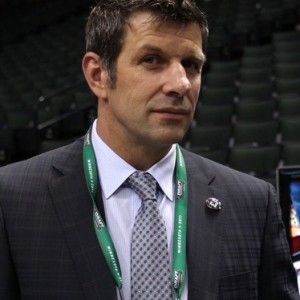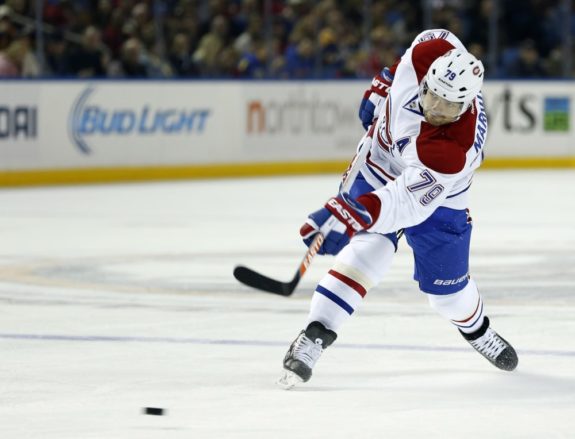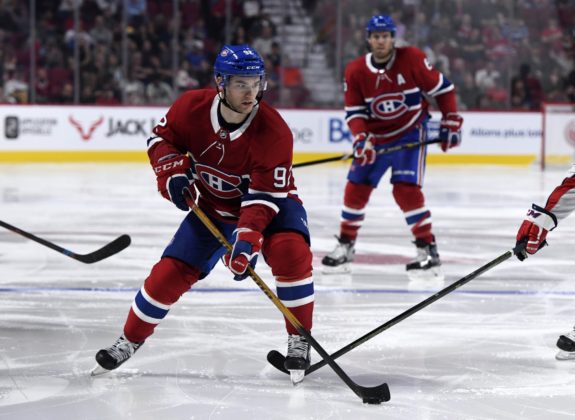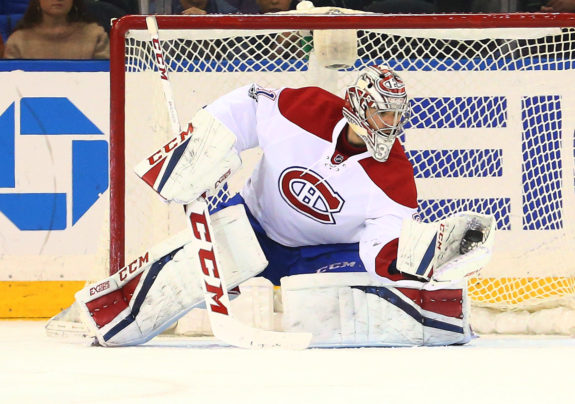It’s not easy being Montreal Canadiens general manager Marc Bergevin.
Granted, that’s if you take away the huge salary and one of the most sought-after jobs in hockey, but that’s unfortunately the point: If you look at the on-ice product, he’s not doing his job, not well anyway.
Out of Bergevin’s Control?

Nothing is going right for the guy, to the point that even the things out of his control, like the salary cap, seem to be blowing up in his face. For example, if reports the cap could increase to up to $82 million for the 2018-19 season are true, it won’t matter how confident owner Geoff Molson is in the team’s embarrassing cap situation.
Currently boasting the eighth-lowest overall hit in the league, the supposed-cap-team Canadiens might have been hoping that the space they have currently would end up paying dividends this summer. Maybe they have their eyes on John Tavares, for example (they allegedly do). However, the higher the cap goes up, the more space every other team will have too. So, if you’re Tavares, do you go with the Canadiens offering you as much money as they absolutely can, or a team that is closer to a championship that can offer you the exact same amount?
There comes a point where cap space is like water. The more you have, the less valuable it becomes. For the Habs, that point came, oh, around a few games into the season, once it became clear they could not compete as a budget team. And now they’re drowning in it.
In Fairness to Bergevin
To be fair, Bergevin has abstained from making moves out of desperation to eat up the cap space he does have. To be just as fair, failing to re-sign Andrei Markov this summer was a giant miscalculation, one made disrespectfully according to reports.
Signing Markov, even for one year, would have filled up the No. 2 spot on the team’s woefully undermanned defense. Instead, Bergevin opted to stick to his guns and not give in to the 39-year-old’s admittedly high demands, disregarding his undeniable value to the team the previous season. He instead went with the now-40-year-old Mark Streit on the cheap, disregarding his lack of value down the stretch to the Stanley Cup-champion Pittsburgh Penguins. It didn’t work out so hot.

It’s quasi-admirable that Bergevin wanted to maintain some semblance of a pay structure by not setting a precedent and giving too much to a defenseman hypothetically on the verge of retiring. Three things wrong with that strategy, though:
- You had (have) the cap space to sign him and then some.
- There’s no point saving space for a rainy day, if they’re all rainy, at which point there won’t be much you can do to use it up at the trade deadline.
- Bergevin’s pay structure went up in smoke the second he decided to trade two 2016 second-round picks for Andrew Shaw and sign him to more money than Brendan Gallagher.
Even if you want to argue the Habs couldn’t have made use of the likes of Alex DeBrincat (21 points in 30 games this season) and Chad Krys (or, alternatively, Samuel Girard), Bergevin also blew his pay structure out the window with the Jonathan Drouin signing.
Drouin vs. Sergachev

Instead of signing Drouin to a bridge deal like he did P.K. Subban and Alex Galchenyuk out of their entry-level deals, Bergevin showed him the money right away. Admittedly, Drouin’s six-year, $33 million deal is decent value. It looks bad only when you consider Bergevin had to give up defenseman Mikhail Sergachev to acquire him.
Not only would Markov have helped to bring Sergachev along this season and groom him to take over that No. 2 spot beside Shea Weber, but Sergachev currently has more points than any Habs defenseman… bar none. In fact, Sergachev has more points than any Habs player (20 compared to Gallagher’s 19).
You can definitely argue it’s an unfair comparison, because Sergachev probably wouldn’t have nearly as many points as a Canadien, just as Drouin would probably have more as a member of the Atlantic Division-leading Tampa Bay Lightning.
The Price Is Wrong
However, the Canadiens were meant to contend this year and be one of the top teams in the entire league, before Carey Price’s new, cap-space-crippling extension kicks in next season to the tune of $10.5 million per. It’s only logical that the more money you give one player, the less you’ll have to build around him.
Of course, maybe that’s a moot point now, not just because of the excess space the Habs have, but also the horrible season Price is putting together (8-9-2 with a 3.16 goals-against average and .899 save percentage). With Price getting older, and the Habs committed to him financially over the next nine seasons, up until he’s 39, it’s looking increasingly unlikely that the Habs can compete over that same time span.

At least the deal is not as long as Weber’s, which will pay him an average of $7.86 million until 2026, which is ironic. That trade is arguably the point at which Bergevin’s tenure went to hell, but Weber is really the only recent major acquisition/ signing of his that has come as advertised.
If you look at how the trade is working out for the Nashville Predators in comparison though, it doesn’t really matter how great Weber is playing. The Predators are coming off a Stanley Cup appearance, with Subban playing a starring shutdown role all the while (in spite of all the ill-informed shade thrown his way with regard to his defensive play).
Subban remains one of the key cogs on a legitimate Cup contender this season. It’s easy to look at the Predators and wonder what might have been for the Habs. I mean, it’s probably hard for Bergevin, but, again, everything seems to be these days.